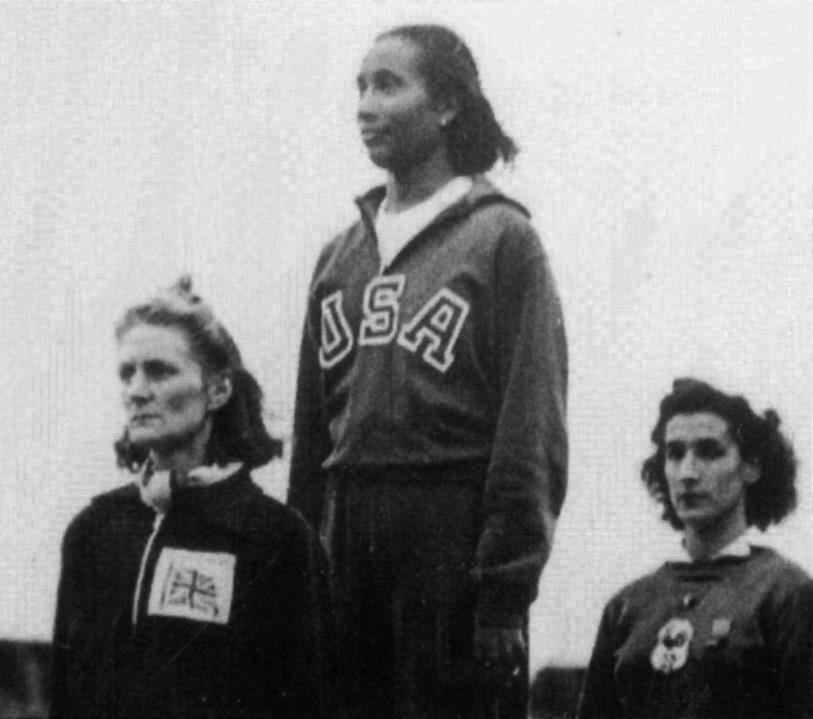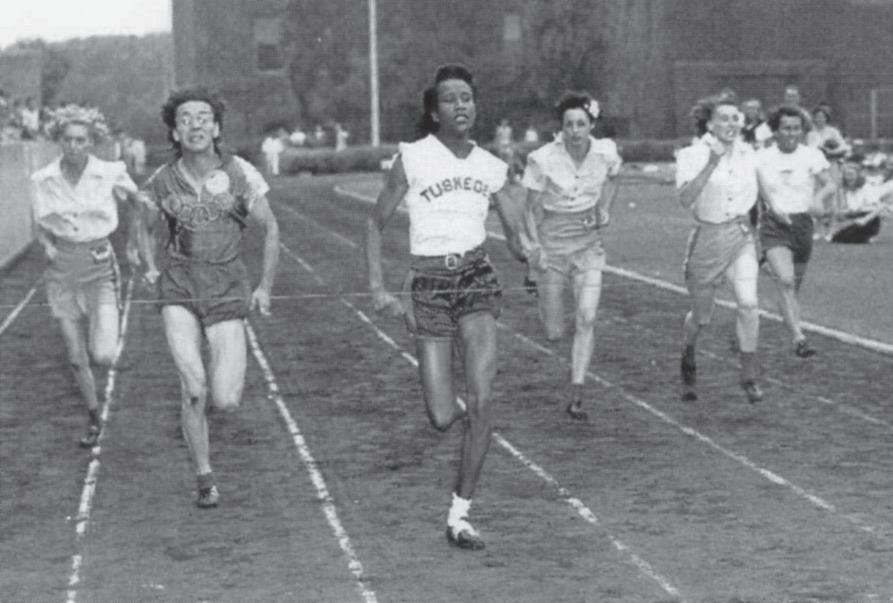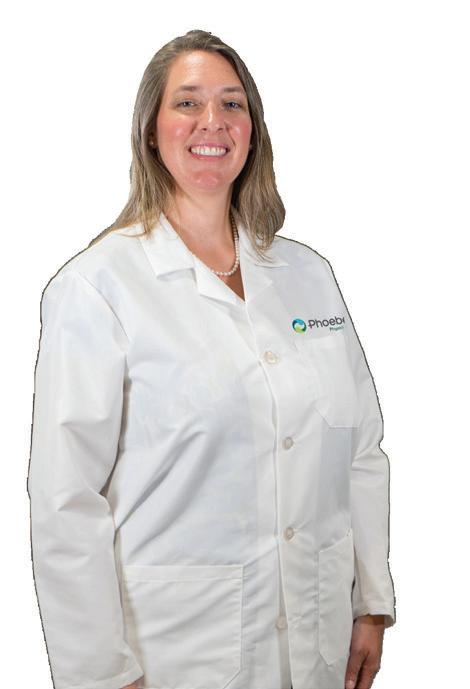
7 minute read
SISTERHOOD OF CHAMPIONS
4
ALICE COACHMAN OLYMPIC GOLD MEDALIST HIGH JUMP 1948
Advertisement
4
LEA HENRY OLYMPIC GOLD MEDALIST US WOMEN'S BASKETBALL TEAM 1984

Written by JIM HENDRICKS Photos by TODD STONE AND BY COURTESY OF THE ALICE COACHMAN FOUNDATION, THRONATEESKA HERITAGE CENTER IN ALBANY, THE LEA HENRY FAMILY.
THE SISTERHOOD OF CHAMPionS
Albany natives Alice Coachman and Lea Henry are members of Albany's most exclusive club – women Olympic gold medalists.
lice Coachman won for her record-setting high jump in 1948. In 1984, Lea Henry won hers with the U.S. women's basketball team. It's an Olympic sisterhood with many common threads. Each desired to excel at a young age. Parents and mentors taught, encouraged, and inspired them to focus, work hard, and chase their dreams. A
After reaching the apex of her sport, each used her experience and prestige as an Olympic champion to positively influence future generations.

"Something about being an Olympian excites people," said Henry, who today is the Dougherty County School System's athletic director. "I think that will always be a major part of my identity. It's one of those accomplishments in life that is significant to people. It's always part of the discussion."
That was especially true for Coachman, who shattered the race barrier on an international scale by becoming the first African American woman to win an Olympic gold medal.
ALICE COACHMAN, THE FIRST AFRICAN AMERICAN WOMEN TO WIN AN OLYMPIC GOLD MEDAL.
She so dominated her field in the years leading to the '48 Games that it's possible she would have been a three-time medalist had the 1940 and 1944 Games not been canceled because of World War II.
ALICE COACHMAN, CENTER, WINS THE GOLD FOR THE UNITED STATES IN THE 1948 OLYMPICS.

"It speaks for itself when you're both No. 1 and the first," said Coachman's son, Richmond Davis, of Akron, Ohio, said.
It certainly ensured the spotlight was on Coachman, who was inducted into numerous halls of fame when she attended events. "I went to a number of those," said Davis, who was his mother's agent. "There were a lot of different athletes. They were very accomplished, but when you're first worldwide at what you're doing, it's a little tough to beat that."

she realized fame a different way—meeting President Henry Truman and music legend Count Basie; parades in Georgia; a street, school, and park named for her in Albany. She also was the first African American to get an international product endorsement deal. Her image appeared with Olympian Jesse Owens on Coca-Cola billboards in 1952.

"THAT AD ACTUALLY PROPELLED A LOT OF OTHER PEOPLE TO WANT TO BE IN THE OLYMPICS," DAVIS SAID. "IT SHOWED THAT THERE WERE POSSIBILITIES TO DO OTHER THINGS. THAT MADE A BIG DIFFERENCE."

Henry's role model was her father, W.T. Henry, who played college hoops before becoming a longtime coach and athletic director.
"When you think about basketball, I was born into it," she said. "I set my goals high. When I was in high school, I was sitting with my dad, and the Olympics were on.
I said, 'I want to play in the Olympics one day.' He said, 'Well, you can, if you set your goals to do that and work hard. But you've just got to remember there are a lot of other girls your age who want to do the same thing, so it depends on how hard you work."
Coachman, whose legendary barefoot training on South Georgia dirt roads led her to the world's biggest athletics stage, found a role model closer to home as she got older. "Her mother was her role model because she was so wise and had survived so much," Davis said. Coachman's mother "was the foundation of the family and the person who talked her dad into allowing her to attend Tuskegee [University]."
Selecting the right educational institution was critical to their success of both Coachman and Henry.

THE 1984 UNITED STATES WOMEN'S BASKETBALL TEAM, WHO TOOK HOME THE GOLD IN THAT YEAR'S OLYMPIC GAMES.
"I MADE A GREAT, GREAT CHOICE ON PLAYING FOR PAT SUMMITT AT TENNESSEE," HENRY SAID OF HER COLLEGE AND OLYMPICS COACH. "WE CAN WORK HARD AND DO ALL THE RIGHT THINGS, BUT WE HAVE TO HAVE HELP.

"I surrounded myself with someone who could really help me. Pat understood my dreams and my goals, and she could help me accomplish those."
At Tuskegee, Davis said, Coachman "had a lot of support so she could learn a lot of different things. She had a good foundation and a lot of good people around her at the institute to help her grow, develop, and learn."

"The track team traveled a lot," he said. "She got a chance to see things the average Albany girl her age just did not see."

LEA HENRY, 1984 OLYMPIC
GOLD MEDALIST, U.S. WOMEN'S BASKETBALL.
A desire to give back to the community was felt deeply by both women. Coachman, who earned her degree at then Albany State College, went into education and worked with Job Corps. Henry went into college coaching, returning to Albany nine years ago to coach at then Darton State College.
Davis said he's often heard of his mother's influence. He cited a reunion at Carver High School in Atlanta where, years before, Coachman had coached the track and field team from last place to second place.
"They sent me this wonderful letter about how much they really appreciated what she had done for them because what they learned during that time period helped them be better coaches, teachers and parents after they graduated
ABOVE: 1984 US WOMEN'S BASKETBALL TEAM CARRYING COACH PAT SUMMIT AFTER GOLD MEDAL WINNING GAME.


BELOW: HENRY AND HUSBAND GREG MANNING WITH STUDENTS FROM THEIR L&G CAMP FOR CHAMPS TODAY, HENRY IS THE ATHLETICS DIRECTOR
FOR THE DOUGHERTY COUNTY SCHOOL SYSTEM. SHE STILL COACHES BASKETBALL.

from high school," said Davis, who was his mother's agent. "Their performance in athletics had compelled them to go forward and do other things.
"These are the kinds of things I would hear all the time when I'd take her to different events."
In 1985, as a way of giving back to the community, Henry and husband Greg Manning started L&G Camp for Champs.
"When you take on the responsibility to coach, you take on the responsibility to make a positive difference in a young person's life," Henry said.
"SPORTS IS THE AVENUE YOU HAVE TO TEACH THAT YOUNG PERSON ALL THE VALUES YOU NEED IN LIFE."
Asked what he wants his mother's legacy to be, Davis replied "Kindness to others. And work hard, never give up, no matter what the odds are against you."
Henry says she wants to be remembered as someone who "just wanted to make a positive difference, someone who worked hard to help others." ∞
The care you need. The experts you trust.

Derek Heard, MD

Peggy Bergrab, MD

William Fricks, MD
Phoebe Primary Care
Our Primary Care team is your gateway to a network of more than 400 healthcare providers – including doctors, specialists, advanced practice providers, nurses and other healthcare professionals– across 41 locations right here in southwest Georgia. Finding a Primary Care provider near you is simple. Just call 229-312-MYMD or visit choosephoebe.com.

We’re generating opportunity for more Georgians.

At Georgia Power, we do more than make energy. We fuel our economy by bringing new companies to Georgia and helping to grow the ones that are already here. Our efforts have resulted in over 147,000 new or retained jobs in the last 10 years alone, creating better communities and stronger families. And showing people across our state more possibilities than ever before. To see how we’re
generating opportunity, visit georgiapower.com/growth.










